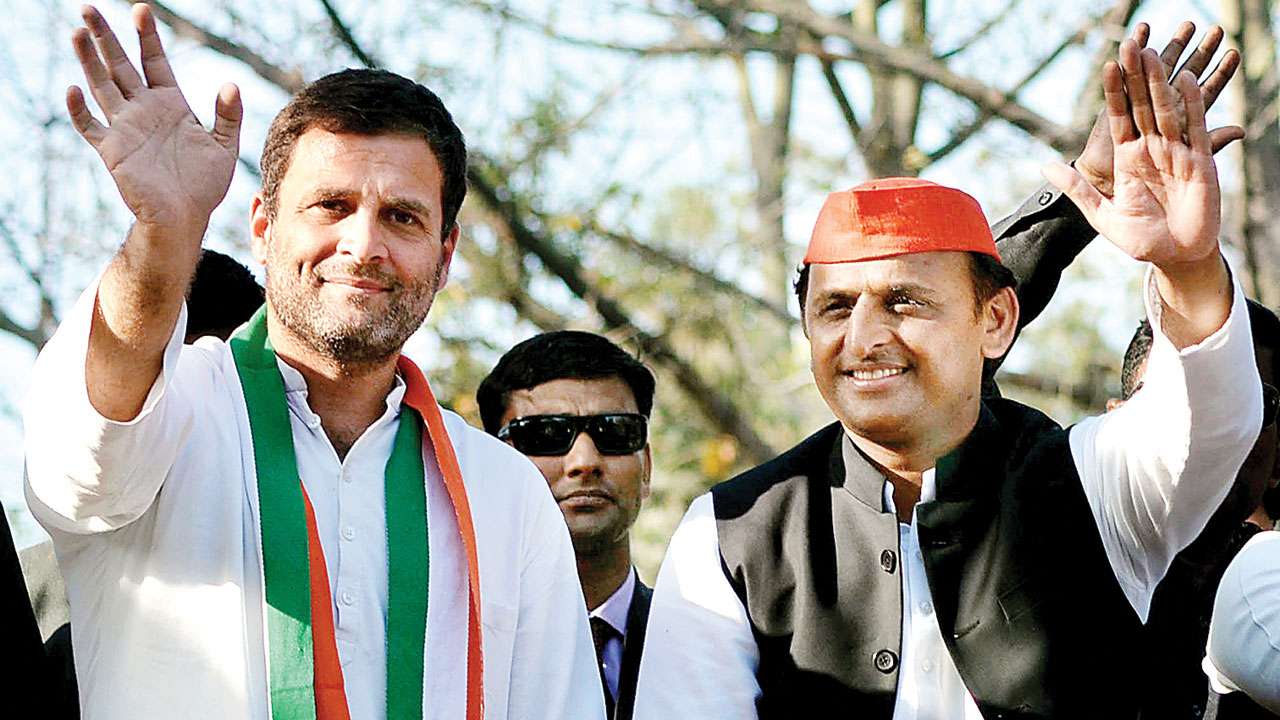
Political parties of various shades are ostensibly showing their orientation for unity to prevent the division of anti-BJP votes. This includes, the Congress, RJD, TDP, TMC, JDS and the likes. This alliance is forged by the desperation to share power. The grounds for the alliance was created soon after the mandate of 2014, which gave a thumping majority to the BJP under Narendra Modi. Opposition parties have one common army of intellectuals who are in academia and in the media. Their anti-Hindutva, anti-RSS and anti-Modi advocacy make them more than obvious stakeholders in power politics. The battle is between the collective conscience of India which voted Modi, an RSS pracharak, to power and the perpetrators of old politics based on pseudo-secularism and championing of sub-nationalities. The latter enjoy moral, psychological and material support from the predominant Western intelligentsia which, too, dislike India shining with her material and cultural progress. Bad climate, bad politics and Hindu majoritarianism are the three ingredients of their propaganda mills. This class also received support from Pakistani lobbyists among others.
The New York Times’ 19-member editorial team had made an appeal during the 2014 elections to not vote for Narendra Modi. The pseudo-secular intelligentsia seemed to have forgotten the limit of their influence and wisdom. The alliance’s sole agenda is to remove PM Modi from power and castigate the RSS. It doesn’t have a prime ministerial candidate; there is no game-plan for 2019 elections, which is why it doesn’t have a common minimum programme. Since it’s confused and directionless, it has kept voters in the dark. The alliance is full of negativism and hunger for power. Indian voters know the importance of a strong Centre and strong leadership not only because of India’s quasi-federal politics, but also due to the changing power dynamics in international politics. They criticise PM Modi with shallow logic. Unfortunately, none of them could produce an alternative to Modi’s economic and social philosophy. Their arguments against the RSS have become obsolete and untenable.
The concept of an alliance in India is neither new nor unnatural. In the past, too, there had been three occasions when coalition politics shaped the democratic currents of the country. The first alliance was in 1967, which challenged the monopoly of the Congress. Non-Congress governments were formed in eight states. The movement was also known as Non-Congressism. Its chief architects were veteran socialist Dr Ram Manohar Lohia and Pandit Deendayal Upadhyay. The Socialists, Bharatiya Jana Sangh (BJS), Congress(O), Swatantra Party and Communist Party of India (CPI) were its main constituents. It critiqued the governing principles and economic failures of the Congress. Back then, idealism had dominated the coalition partners. However, its extension in 1971, known as Grand alliance, abysmally failed because Indian voters refused to vote for a coalition that lacked dynamism, and a pan-India leader. Another experiment was in 1977 when non-Congress, non-Left parties merged to form the Janata Party. It was another revolution to save democracy from the authoritarianism of the Congress led by Indira Gandhi. The coalition failed due to inherent ideological dichotomies. However, its contribution had immensely influenced the democratic tradition of India and enhanced the index of democratic concern and confidence of the Indian people and parties.
The third experiment was in 1989 when the VP Singh government was formed, but its outcome was pathetic. A fragile coalition resulted in poor policy formulations and destructive politics by its stakeholders who pandered to their respective vote-banks. Subsequently, the decline of the Congress also saw the emergence of the BJP. It was this transitional phase which dominated Indian politics between 1996 and 2014.
The BJP’s emergence is not merely an electoral alternative but a new paradigm with new perspectives on nationalism and secularism, and a new approach to international politics. This is a phenomenal rise of an ideology-driven party which didn’t compromise its basics. The dynamics of electoral politics could not mutate its creed nor its enthusiasm to be part of a socio-cultural-civilisational movement. The BJP broke away from the Janata Party in 1980 on the question of its affiliation with the RSS. The venom spewed by the Congress and Left-liberals could not affect the mission of the Sangh Parivar.
The present grand alliance is an exhibition of opportunism. The constituent parties and their leaders have communal and casteist agendas. The Congress is deluded by its legacies. It’s the party of one family, which is suffering from creditability and vision deficits. Its allies, too, are parties formed by dynasts and individualists. Their binding factor is old secularism, a legacy of colonial politics which worships minorities and suppresses Hindu philosophy, culture and civilization, calling them communal. India has changed and the credit goes to the RSS for the silent resurrection of a genuine idea of India. The parties of the grand alliance have failed to read the message on the walls of the nation: The soul of India has emerged from a long spell of suppression and electoral politics cannot ignore this reality.
The author is founding Honorary Director of India Policy Foundation, a Delhi-based think tank. Views expressed are personal.